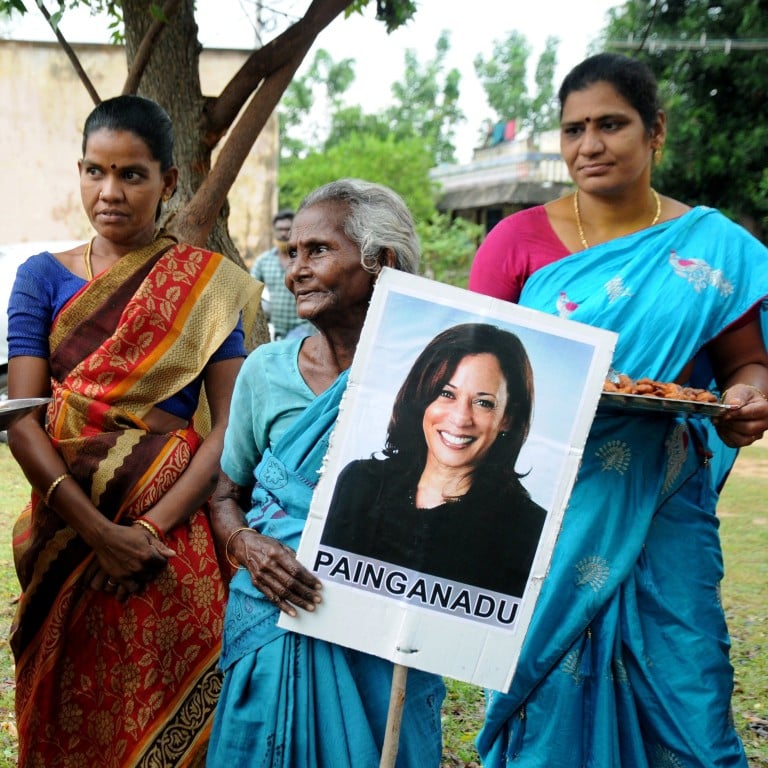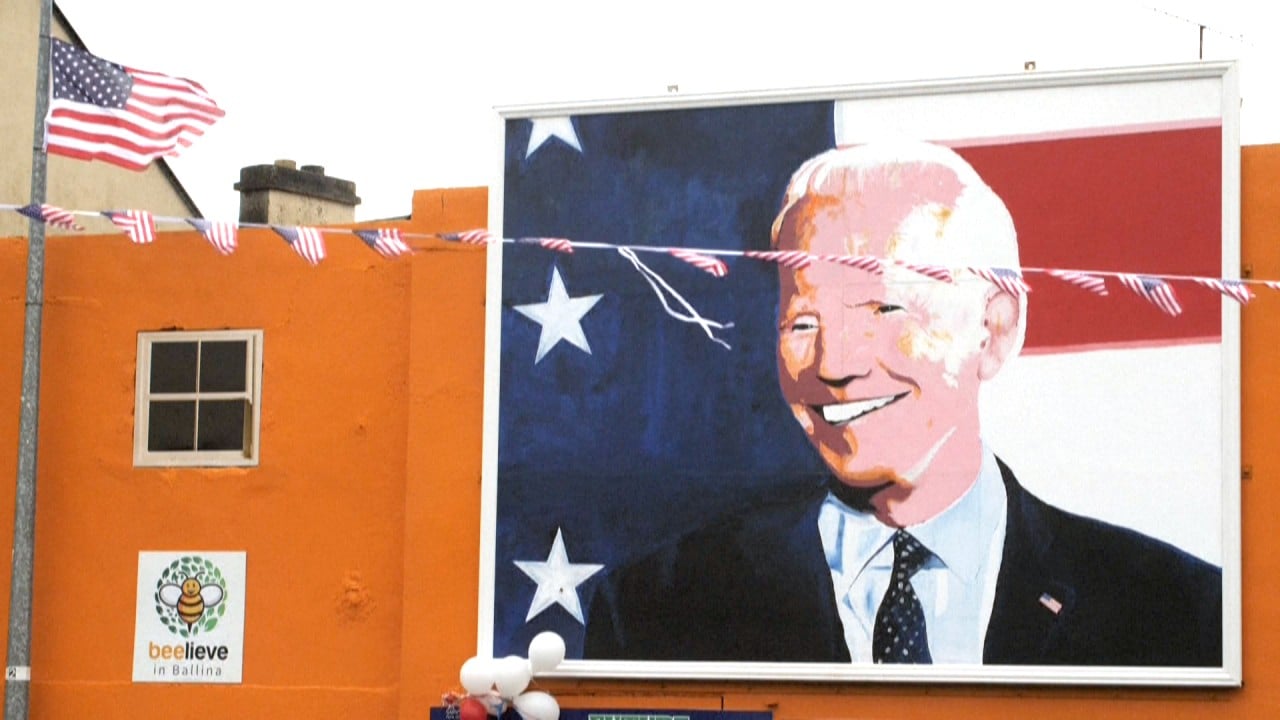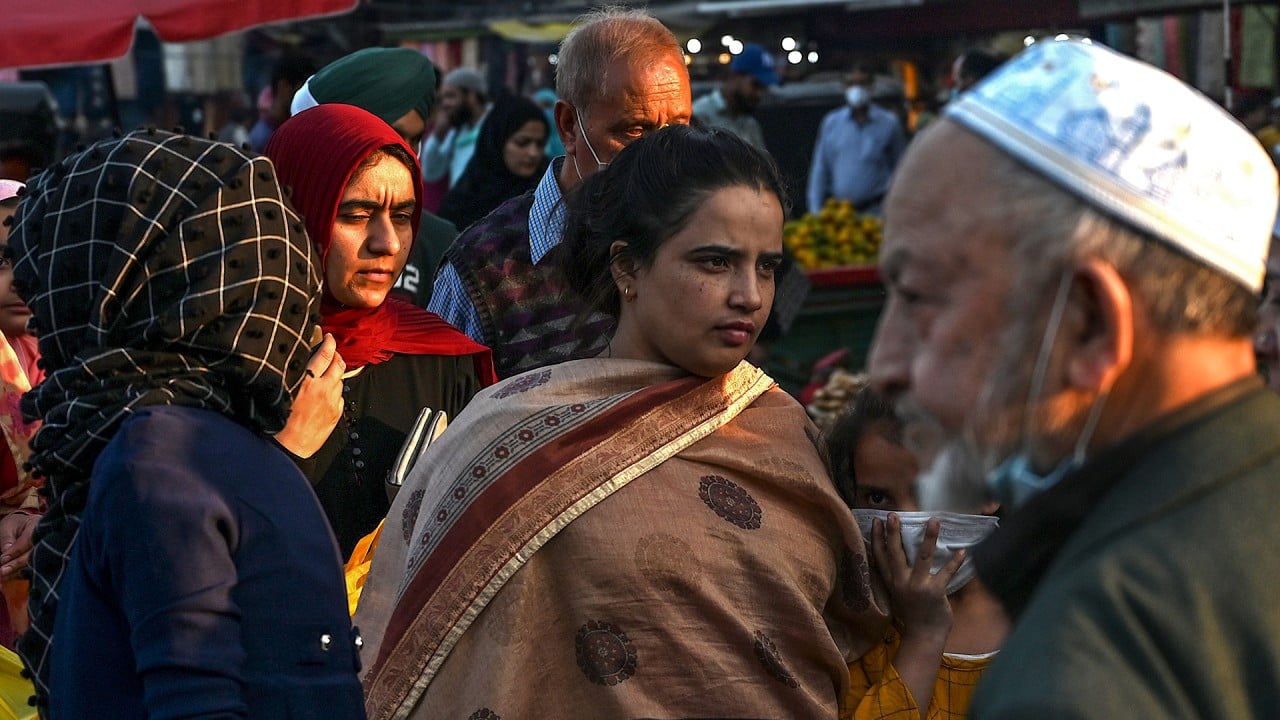
What the Biden-Harris victory means for India and Hindu nationalism
- If Indians believed US-India relations were on solid ground given the bond between Trump and Modi, what does a Biden-Harris government portend?
- For Modi, it seems it’s bad news and a political investment gone awry
In the run-up to the US presidential election, Joe Biden’s campaign specifically courted the vote of the Indian-American community.
Before the election, there were concerns that South Asians in the US could be turning politically conservative, a fire seemingly stoked by the growing Hindu nationalism in India.
But if Indians believed the US-India relationship was on solid ground because of the populist bond between Trump and Prime Minister Narendra Modi, the question then is: what will become of the bilateral relationship now that Biden and Harris are set to take up the reins?
At the rally, Modi was seen to be endorsing Trump when he adapted his own campaign slogan for the US president, saying “ab ki baar, Trump sarkar” (or “this time, a Trump government”). Similarly, Trump’s inaugural visit to India in February this year featured a two-day “Namaste Trump” rally.

01:44
Biden and Harris’ ancestral homes, Ireland and India, celebrate their US presidential win
Trump’s affinity for Modi is based on their shared right-wing ideology. Although Trump never went so far as to sign a trade deal with India, the two leaders have been quite happy to be perceived as allies.
They each championed nationalism to rise to the highest office in their countries: Modi, with his vision for a Hindu nation, and Trump, with his promise to “Make America Great Again”.
In contrast, Biden has taken a clear stance on this and other issues. Whereas Trump chose not to address the Hindu-Muslim riots sparked by the Indian citizenship law during his tour of Delhi, Biden’s campaign website makes clear that the president-elect is “disappointed” by the passage of the Citizenship Amendment Act.

02:31
Biden’s victory instills fresh hope in Kashmir over revocation of special status
Biden’s campaign website goes as far as to say that “the Indian government should take all necessary steps to restore rights for all the people of Kashmir. Restrictions on dissent, such as preventing peaceful protests or shutting or slowing down the internet, weaken democracy”.
Narrow Biden win dims hopes for US dollar, further stimulus
Following the Biden-Harris victory on November 7, Modi congratulated both the US president-elect and vice-president-elect on Twitter.
He praised Biden’s work as vice-president, and tweeted that Harris’ win was “a matter of immense pride not just for your chittis” – a Tamil term of endearment that picks up on Harris’ shout-out to her aunts across the Tamil diaspora during an earlier speech. Modi added: “I am confident that the vibrant India-US ties will get even stronger with your support and leadership.”
At the end of the day, it is impossible to predict whether a Biden-Harris government will be good for India. Perhaps fresh resources and new deals can be taped over old wounds. But the incoming US administration is certainly an indication that right-wing extremism is living on borrowed time.
Akanksha Singh is a writer and culture journalist based in Mumbai, India











